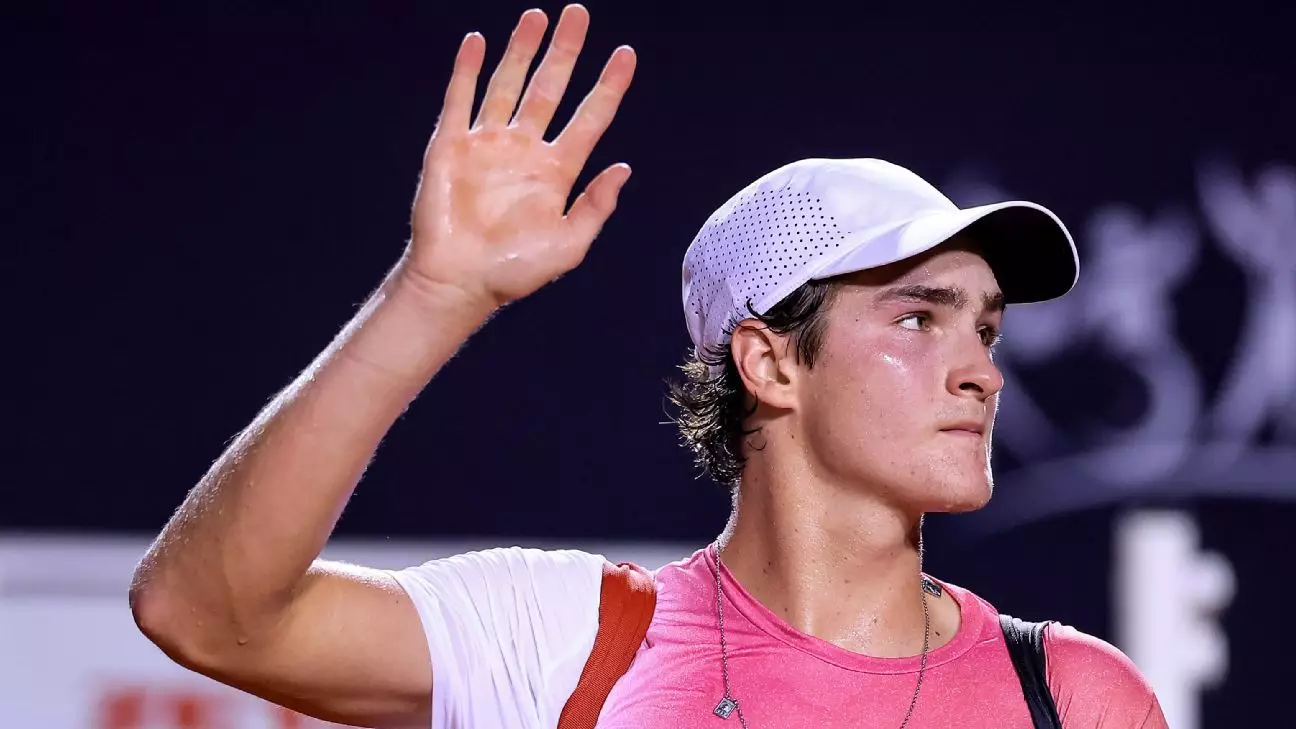João Fonseca, an 18-year-old Brazilian tennis player, recently experienced both triumph and disappointment in rapid succession. Just two days after achieving a remarkable milestone by claiming his first ATP title at the Argentina Open, Fonseca returned to his home turf in Rio de Janeiro, only to stumble at the first hurdle. His first-round match against France’s Alexandre Muller culminated in a 6-1, 7-6 (4) loss, leaving fans who hoped to witness a second consecutive victory disheartened.
Fonseca’s performance was marred by a staggering 34 unforced errors, which hints at a palpable exhaustion that likely stemmed from his strenuous efforts in Argentina. After such an emotional and physical triumph, stepping onto the court to face Muller’s challenge may have proven overwhelming. The young Brazilian demonstrated flashes of brilliance but ultimately fell short, setting the stage for a sobering lesson in the fickle nature of professional sports.
Despite his disappointing exit in Rio, Fonseca’s achievements in the preceding weeks are nothing short of historic. His victory at the Argentina Open not only marked the first title for a player born in 2006 or later, but it also confirmed his place as the youngest South American champion in the ATP Tour era. Such achievements underline the significance of his potential in the sport, as he joins the ranks of tennis prodigies who have made their mark at a young age. His rise in the ATP rankings, moving up 31 spots to claim the No. 68 position after his win in Buenos Aires, solidifies his status as one of the most exciting young talents on the circuit.
Nevertheless, fans witnessing his curtains fall in Rio could not dismiss the reality of sports; victory isn’t guaranteed, and even the most promising athletes can falter at the most critical junctures. This loss serves as a reminder that the transition to stardom is rarely seamless and often fraught with challenges.
Coach and fan analysis of the match against Muller may yield essential insights into Fonseca’s development as a player. The unforced errors witnessed during the match suggest a need for greater mental resilience and adaptability on the court, qualities that can define a player’s career trajectory. While the adrenaline rush of his recent title likely contributed to the fatigue seen in his game, learning to manage that emotional and physical toll will be pivotal as he advances his career.
Looking ahead, Fonseca must embrace this experience as an opportunity for growth rather than a setback. Each loss is a building block, equipping young athletes with knowledge that facilitates continued evolution. As he prepares for future competitions, the lessons learned in Rio may prove vital in shaping a more robust and capable player, ensuring his journey to prominence is filled with both triumphs and the wisdom of resilience.
João Fonseca represents the bright future of tennis, and while this moment may sting, it is merely an interlude in the broader narrative of his burgeoning career.


Leave a Reply